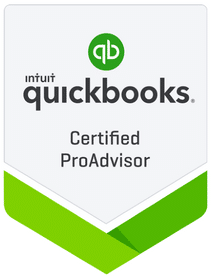- Patrick Roney
- (877) 503-8607
Follow Us :
Follow Us :
Proledge
October 23, 2010

Horror stories of bookkeepers who defrauded their employers or clients abound, but when you look at what happened, in almost all the cases, you can see that the business owner simply got massively sloppy and begged for trouble. You can’t insure yourself 100% against fraud, but you can make it extremely unlikely. Delegating or outsourcing bookkeeping is often the right thing to do… if you do it right.
“Internal Controls” is a fancy terminology used by larger companies but that applies also very well to small businesses. The concept is simple: implement processes that don’t have a single point of failure. Any action that has a financial impact should touch at least two people so that a single individual can’t empty your bank account.
There are manuals the size of encyclopedias on how to implement internal controls in larger companies, but for small businesses, you’ll have a big leg up if you can focus on three core concepts:
Even if you are considering hiring a “good friend of a good friend” as a bookkeeper, perform thorough background checks or hire a reputable bookkeeping firm that performs background checks on all its employees. This should include both criminal background checks (there are great websites for this) and calling past employers and clients. You’ll be amazed at how frequently red flags come up. Remember that the bookkeeping profession is not regulated.
The bookkeeper should not cut checks. He/she should not even have access to the stock of blank checks. The bookkeeper should prepare the checks in QuickBooks, but it should be someone else (ideally the business owner) who prints and signs these checks. If this is not practical, set yourself up with your bank to require two signatures on the checks or leverage online accounts payable solutions such as Bill.com. These online tools allow the bookkeeper to prepare all the payments for the vendors, but they require the business owner (or a senior person in the company) to approve the payments through an online interface, which then triggers the payments online. No more paper checks, which are the #1 source of fraud.
The business owner should review the books. Pretty much all the fraud happens with “financial absentee owners”; owner who don’t understand the intricacies of their books. Delegating or outsourcing bookkeeping is often a very smart thing to do, but that doesn’t mean that you have to wash your hands of accounting all together. If you are familiar with QuickBooks and how the money flows between the accounts, you can spot most fraud a mile away with just a few minutes of work per month. As the business grows, it can become more difficult, but that’s when you need to implement more sophisticated internal controls.
The vast majority of bookkeepers are highly ethical people, but you won’t hurt their feelings if you implement processes to minimize the risk of fraud. Good bookkeepers actually prefer when you implement these internal controls because it decreases their liability.


Fill out the form below to sign up to our Blog Newsletter and we’ll drop you a line when new articles come up.
Bookkeepers.
Professional. Affordable.
ProLedge is a bookkeeping services firm.
Copyright © 2024 All rights reserved.